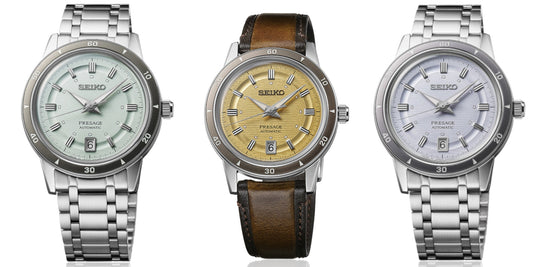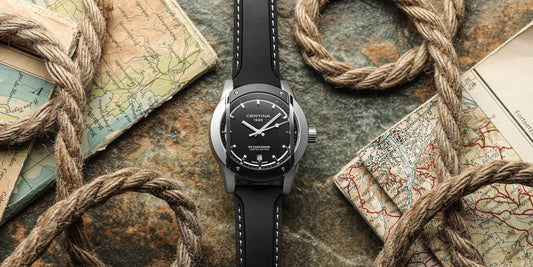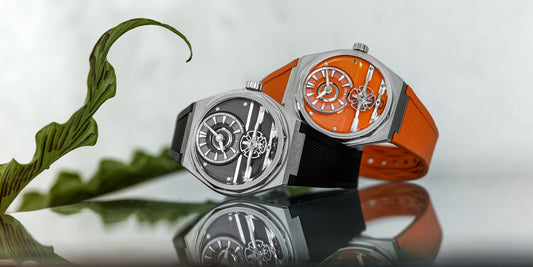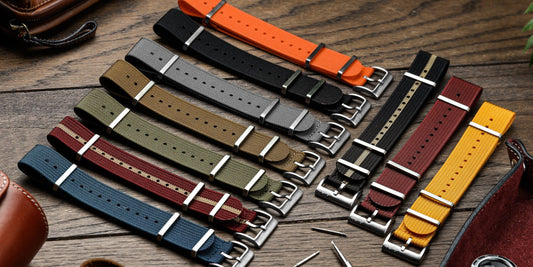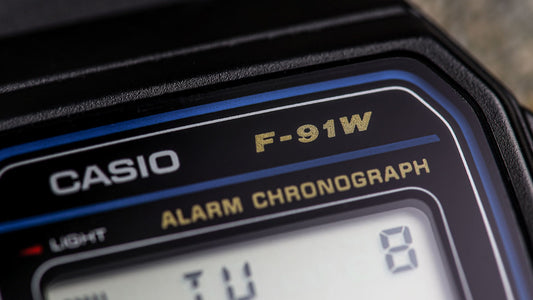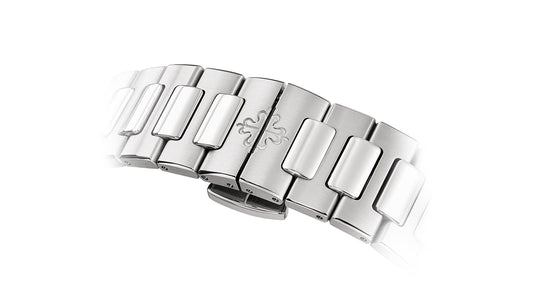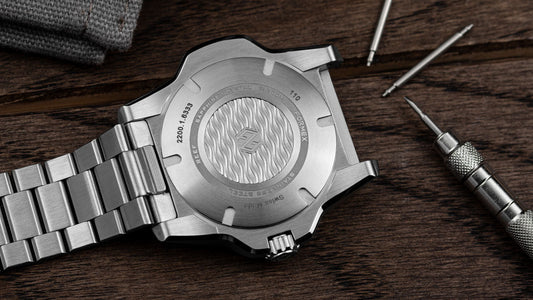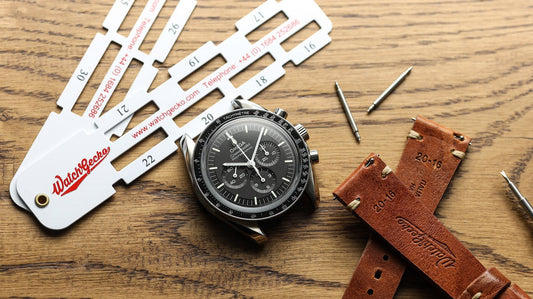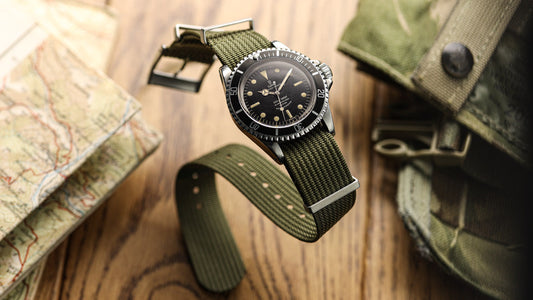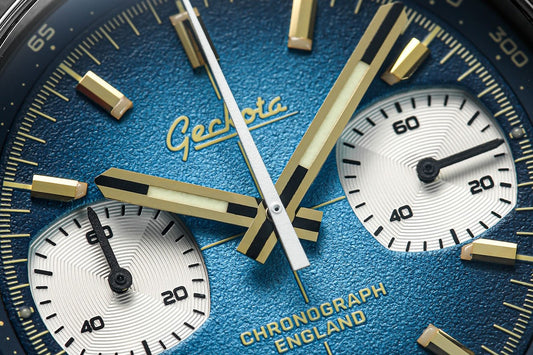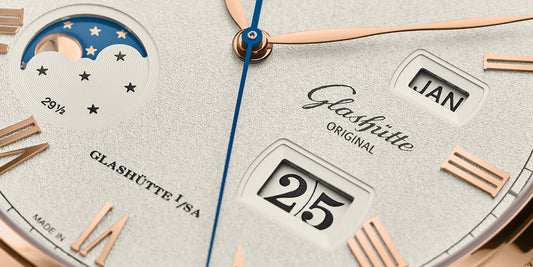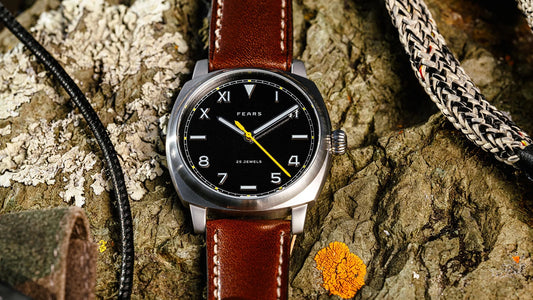Buying vintage Seiko chronographs can be a delight or a potential minefield. Read our guidance on buying your first Seiko vintage chronograph.
Do you crave the stunning colours and peerless history of Seiko’s 6192-6002 ‘Pogue’ space watch? How about a classic tonneau-style 6139-8002 from 1971 or iconic Cal. 6138 ‘Bullhead’? Either way, find a good one and vintage Seiko chronos from the 1970s and 1980s offer great looks, solid manufacture movements and a piece of Seiko’s impressive history. However, buying can be a straightforward delight or a potentially expensive minefield for the unwary. Read on for ideas to help you buy that first Seiko vintage chronograph well…
As I write, it’s nearly 140 years since Kintarō Hattori founded the company we now know as Seiko. From 1895’s Seikosha Timekeeper to the latest Grand Seiko Ceramic Spring Drive Chronograph GMT Ltd, it’s been a journey of innovation. And a passage that’s embraced some of the most affordable proletarian watches as well as examples of the most exquisitely engineered and finished timepieces available. You can read more about the brand’s history in my earlier WatchGecko article, but for now let’s look at buying your first vintage Seiko chronograph.
Scratch the Seiko vintage chrono itch
The itch of a vintage Seiko chronograph – probably automatic, but possibly quartz-powered – begs to be scratched. You’ve a few hundred to spend on a vintage watch and are ready to grab a piece of seconds-chasing Seiko history. The good news is that it’s possible on a budget, but, as ever with sought-after vintage watches, real care is needed. Hit that pusher; the clock’s ticking!
You probably know that Seiko means much more than just entry-level Sports 5s, the cult Presage Cocktail Time SRPB43, or punch-above-their-weight underwater explorers such as the ISO 6425 rated Seiko SKX007 Diver’s Watch.

The Seiko Presage Cocktail Time - Image Credit: WatchGecko Online Magazine
With 1969’s now-legendary Cal 6139-powered Seiko 5 Sports Speed Timer, Seiko arguably beat the world to first serial production of an automatic chronograph. What followed over subsequent decades was a series of irresistible chronographs that now legitimately claim the vintage status reserved for 30–100 year-old watches. With care and some luck you’ll find a tasty vintage Seiko chronograph from this period for the tag price of a new Prospex Divers 200M.
Rewind to the 1970's
So what’s available? Remember the 1970s? It was Led Zeppelin’s heyday, the decade when the original World Trade Center was built, a period when oil shock hit Japan and the quartz crisis nearly did for Swiss watchmaking. It was also the time of NASA’s Skylab project and a golden age for mechanical chronographs. To quote Mike Johnson on 60clicks.com, it was when chronographs were defined by ‘intricate dials with colourful accents, daring angular case shapes, and innovative mechanical movements’. Five decades on, a legacy of lovely, remarkably affordable vintage chronographs remains.
Super-cool vintage chronos for sensible money
Arguably, Seiko was the period’s most prolific mechanical chronograph maker. Its headline offerings were the automatic Cal. 6139 (single register) and Cal. 6138 (double register, 21,600 bph, quick-set day date and column wheel vertical clutch) chronos. They remain among the most interesting Seikos ever. Best of all, despite prices later rocketing like a 1970s Apollo launch, you can still find super-cool watches such as the 6138-001X ‘UFO’ (‘Yachtsman’), ‘Kakume’ (‘Square Eyes’), ‘Bullhead’, ‘Jumbo’ and ‘Panda’ for sensible money.
Others, such as the 6138-002X ‘Tokai Zara’ (‘Fujitsubo’), 6138-700X ‘Slide Rule’ (‘Pilot Calculator’), ‘Baby Panda’ and ‘Holy Grail’ 6138-8010 are rarer. And then there’s the sought-after sunburst-yellow-dial 6139-6002 ‘Pogue’. It’s named after NASA astronaut Colonel William Pogue who (unofficially) made it the first auto-chrono in space alongside his NASA-issue Omega Speedmaster. With supreme care, you can bag good examples for well below £1000 ($1300). But read on…
Not just 6139 and 6138 calibers
The period gave us other interesting vintage Seiko chronographs too. If the aforementioned watches don’t appeal, maybe a sought-after squared off automatic Seiko ‘Monaco’ 7016/5001 will? Or how about the visually-complex quartz-powered 7T34-6A00 ‘Flightmaster’ pilot chronograph? Oh yes, plenty of great watches await among the period’s vintage Seiko chronographs. Even if they can’t match the rarity of the hand wound Cal. 5719 (Japan’s first wrist chronograph: the classic Seiko Olympic chronograph launched for 1964’s Summer Olympics), these are stunning vintage chronographs.

1964 Seiko Crown Chronograph - Image credit: Seiko Watches
Where to buy your first vintage Seiko chronograph?
Now things get interesting. Being so affordable when new, many of these watches weren’t treated kindly. Besides, many 6139 and 6138 parts are interchangeable. That means there’s been plenty of opportunity to create avoid-at-all-cost ‘Franken Seikos’ with non-original hands, crowns, bezel inserts, movement parts and other components over half a decade. Avoid over-polished examples too, and anything with a hint of rust or mould. Caveat emptor is the watchword unless you relish a costly major restoration like the Seiko 6139-6005 described here.
Risky for the inexperienced or unwary
Such vintage Seiko chronographs are widely available on the likes of eBay and Craigslist as well as online watch marketplaces such as Chrono24. And in traditional bricks and mortar pre-owned watch stores too.
If you know what you’re doing, bargains certainly exist on eBay and its peers. Yet, consensus seems to be that they’re risky – maybe too risky – for the inexpert or unwary. For valuable insight into the pros and cons of buying vintage watches on eBay, listen to WatchGecko’s Time to Unwind Podcast # 9: Buying Watches from eBay. For a memorable quote, how about, ‘[eBay is] a fascinating rabbit hole…but it’s a minefield at the same time’. You’ve been warned.

Seiko Bullhead Chronograph Ref 6138 - Image Credit: Watches83
Other options may be safer
If it’s your first go at second-hand vintage chronograph buying, there’s a strong argument for the safer (even if pricier) option of sites such as Chrono24. Don’t forget established online dealers such as Spain-based Watches83 Vintage Watch Shop or other trusted pre-owned sellers too.
Do your homework thoroughly and check out vintage Seiko chronograph articles on reputable sites such as Hodinkee, Worn & Wound, The Spring Bar or Vintage Watch Inc. complement this by cultivating relationships with trusted watch dealers – maybe even Seiko specialists – and you could shortcut your search for that honest vintage ‘Pogue’ or ‘Bullhead’.
Let’s give it a whirl!
To see what’s available (August 2020), let’s set up a simple first-time buying scenario on Chrono24 for a mechanical Seiko chronograph from 1970–1989 with a £500 ($700) budget.
We’ll set the following limits: Seiko; 1970–1989; Chronographs; Automatic; Good and Very Good condition; and Pre-owned. Next, set a price range of £200–500 (go on then, make it £600!) and hit ‘Show results (23)’ to see what’s available…
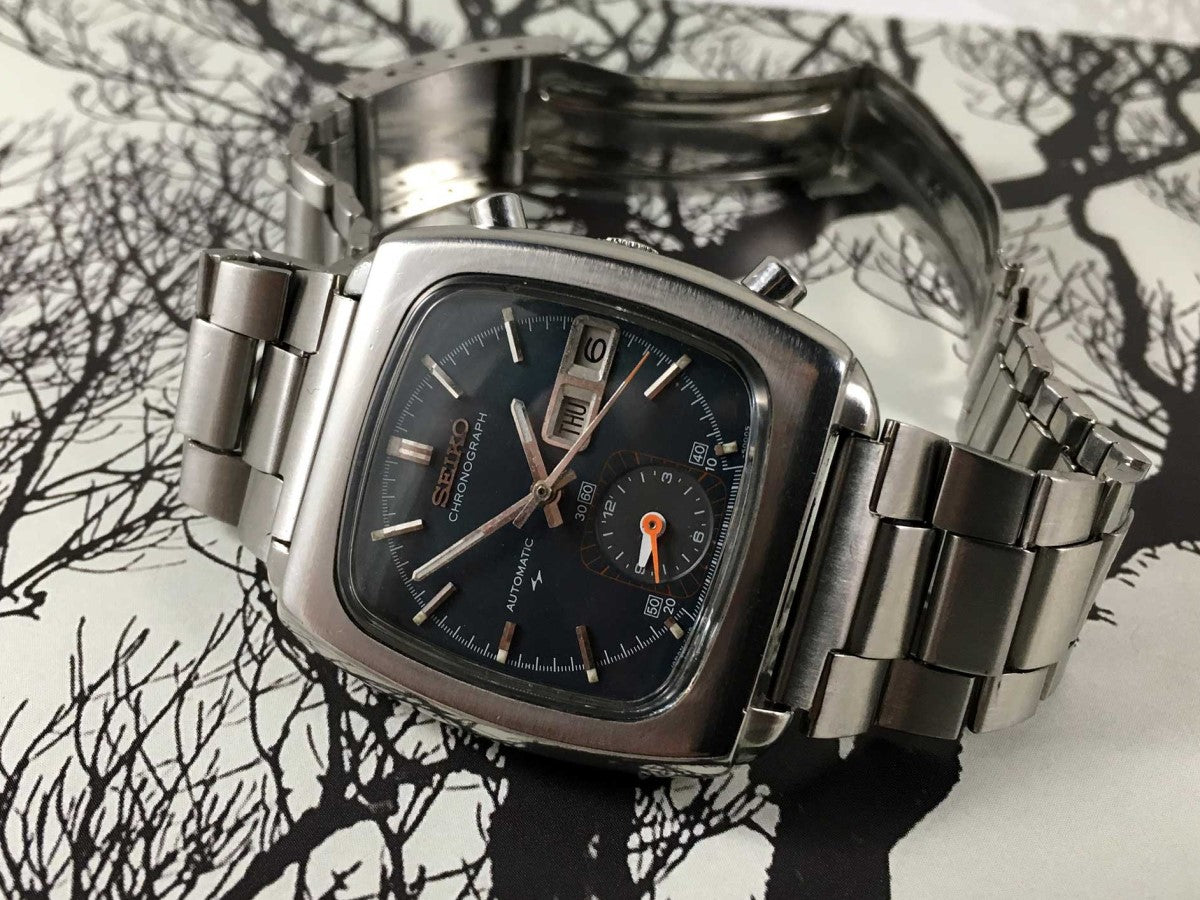
Seiko Monaco Chronograph Ref 7016-5001 - Image Credit: Watches83
Around the world in 23 vintage Seiko chronographs
Of 23 results, 13 are verified dealers. The rest are private sellers. Locations range from the UK and USA to Hungary, Turkey, Israel and India.
The Seiko watches presented include several ‘Pogues’ (often with declarations of ‘aftermarket dials’) and an honest-looking Seiko 6139-8002 Automatic from a well-reviewed UK dealer. Another decent review score attracts me to a Seiko 6139-7100 ‘Helmet’ with 41mm case from a verified dealer in Israel. Yet another UK dealer with good reviews offers a quirky 6139-8020 reference on rally-style stainless steel bracelet.
More budget increases the choice
Raising the upper price to £700 increases our choice to 53 watches. There are ‘UFO’ and ‘Bullhead’ chronos, a 7016/5001 ‘Monaco’ and two ‘Kakumes’. Scrolling down the listings also reveals a 6139 8020 ‘Monocoque’, two Speedtimer 6139-8002 chronographs and an attractive 6138-3002 ‘Jumbo’ 42mm from one of the UK dealers.
I’m not even going to hazard a guess at the best buys (detailed research and price watching is your friend) among these Seiko chronographs. However, instinct nudges me away from the ‘Pogues’, a ‘Pepsi Pogue’ and even a ‘pouge’! Instead, I gravitate to the UK dealers’ offerings.
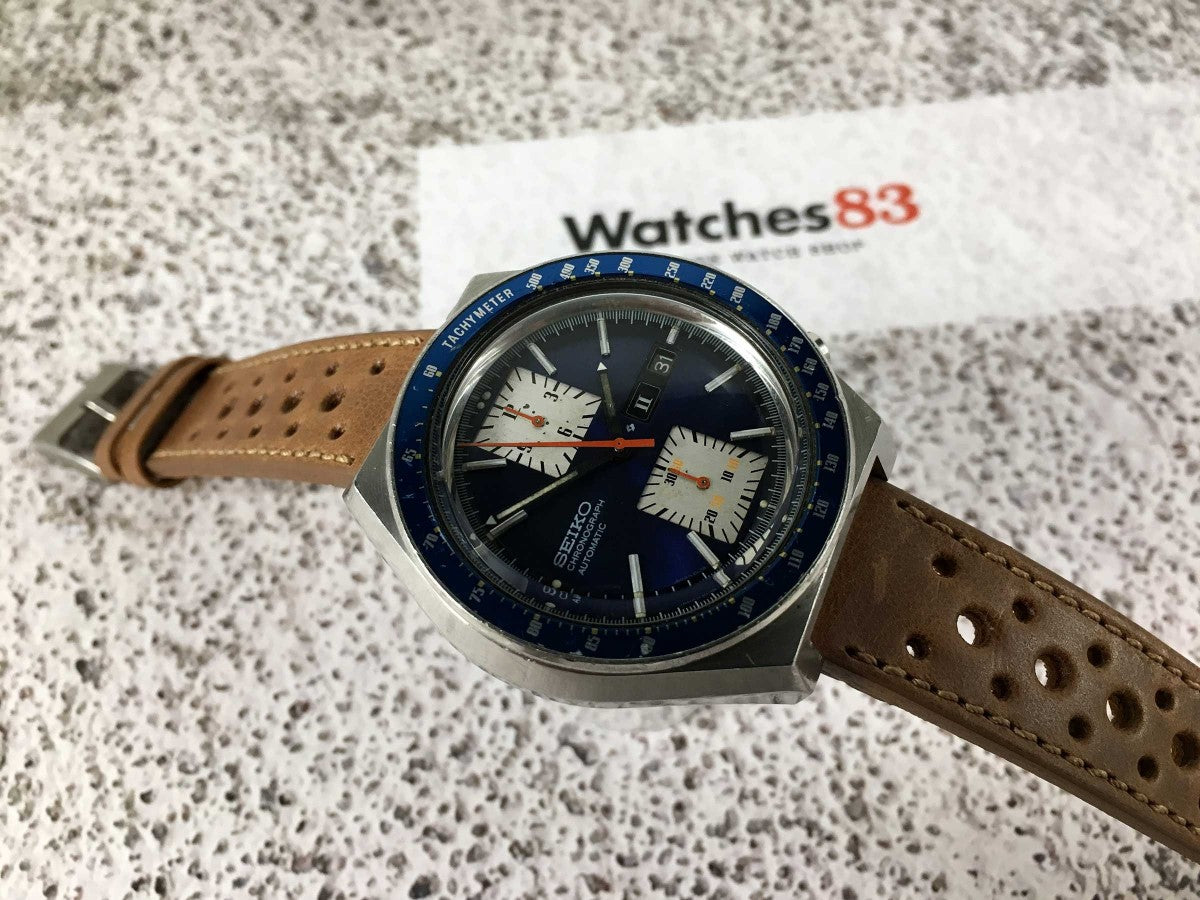
Seiko Kakume Chronograph Ref 6138-0030 - Image Credit: Watches83
Are you feeling lucky?
Thinking about first-time buying strategies, it’s worth considering the possibility of choosing from the available chronographs at your budget rather than relentlessly chasing specific watches – especially more sought-after ones. Both approaches (‘I’d like an interesting Seiko vintage chronograph that catches my eye, meets my budget and has good provenance’ versus ‘Only a Seiko 6138 ‘Bullhead’ will do’) are valid in their own way. Maybe the latter’s a good approach for first-time Seiko vintage chrono buyers. Perhaps a more model-specific search should be for the future when confidence, experience and knowledge are greater? Maybe, as Clint Eastwood’s Harry Callaghan famously said back in 1971, as the 6139 and 6138 were in their prime, you’ve got to ask yourself, ‘Do I feel lucky?’
Whatever your approach, the detail of sellers’ descriptions, how long they’ve been verified dealers and their response to questions about the wrist watch are important. So’s the extent of sites’ buyer protection, such as dealer verification, escrow payments and authenticity guarantees.

Seiko 1976 Speedtimer 6138-0040 - Image Credit: Watches83
As ever, ‘buy the seller’
With automatic chronographs (or any watch), always ‘buy the seller’. This may be easier with verified dealers on watch listing sites, especially if they’ve several years’ track record, their own website or shop, and positive coverage on forums such as Watchuseek.
Then there are seller recommendations from trusted friends or traditional vintage watch dealers with whom you build solid relationships. Particularly for ‘high-risk’ vintage Seiko chronographs such as the 6192-6002 ‘Pogue’, don’t rule out the possibility of accessing dealers’ contact networks to find the Seiko auto-chrono you want. Finding one who’s an authorised Seiko dealer, such as Derek Dier’s USA and Canada-based Watchestobuy.com, is even better.
Everyone must start somewhere
So there you have it, a brief intro to buying your first vintage Seiko chronograph – and maybe your first mechanical chronograph too.
We must all start somewhere. Especially if it’s your first foray into the potential minefield of online second-hand watch sales, be brutally honest about your attitude to risk as well as your product and price knowledge.
Be realistic too about what’s available for your budget. And remember that too-good-to-be-true prices probably are. Equally, understand that shrewd sellers of, let’s say ‘shady’, vintage watches may price them high enough that, though appearing competitive, ‘too good to be true’ doesn’t seem to apply. As a first-timer, you’re up against people who’ve specialised in selling online for years. Many are honest; some aren’t.

Seiko Panda Chronograph Ref 6138-8020 - Image Credit: Watches83
Good luck (and buyer beware)
Your knowledge and attitude to risk might differ from mine. In that case, let caveat emptor apply and I wish you good luck.
On the other hand, thinking about the value of trusted online marketplaces and verified dealers, maybe there’s merit in paying a bit more to secure that first vintage Seiko chronograph. Perhaps you should settle on an interesting-but-lower-profile watch for your first buy? How about a 6139-8020 or black-and-yellow-dial 6139-6012 rather than that ‘Pogue’ or ‘Tokai Zara’? At least until your knowledge and confidence grow.
Either way, I wish you happy watch hunting and years of pleasure from your first vintage Seiko chronograph! Please feel free to share the experience in the Comments section below.


